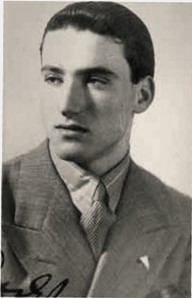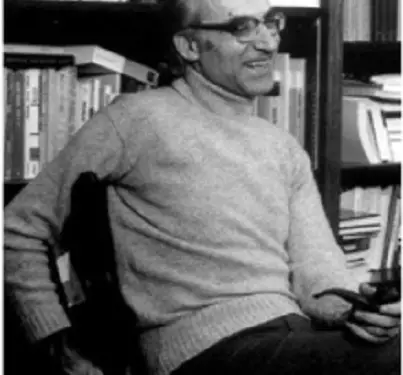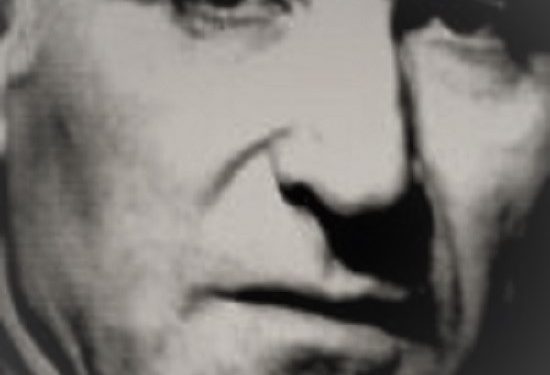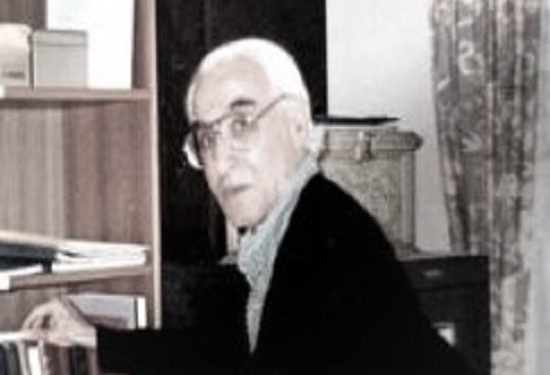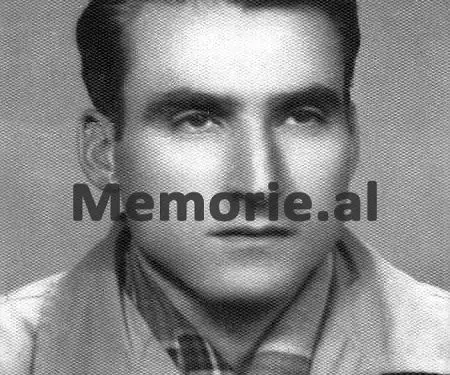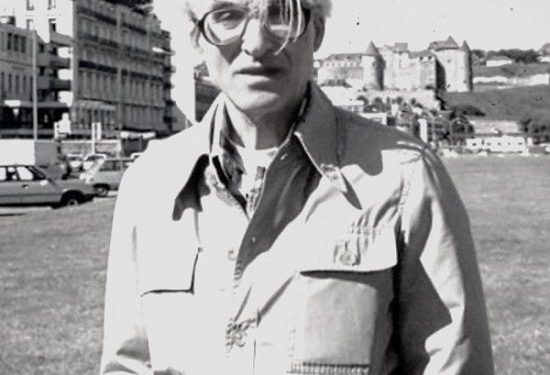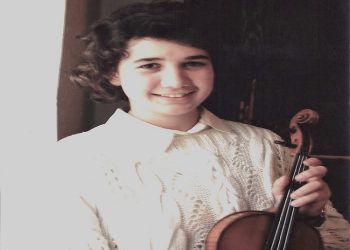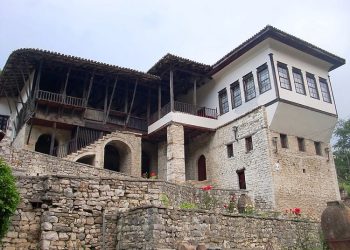By Indrit Qehajaj
The first part
– Arshi Pipa, the profile of an unwanted researcher –
Memorie.al / Among the most basic features of the totalitarian model, especially the Albanian one, remain harsh violence and the elimination of individuals and groups that are considered opponents of the regime. Such was the case of Professor Arshi Pipa who, although he had no proven criminal responsibility, was sentenced twice, staying for about 11 years in prisons and labor camps. The years 1945-1954, which are the time limits of this presentation, coincide precisely with the years of imprisonment and endless suffering of Pippa and his family. Chronologically, we will try to shed light on this important character of Albanian culture, trying to better understand the man and the researcher, the reasons for his imprisonment and for his face with the punishment.
The main materials that were used belong to the personal fund of Arshi Pipa, in the files of the former State Security, which were made available to us by the Authority for Information on the Files of the former State Security. Some of Pipa’s books, written before, during and after the sentence, have been valuable, giving us a complete picture of the man, the intellectual, the writer and the researcher Pipa, among the verses, academic articles and personal narratives.
In the book written in prison and published after the sentence, as the ‘Prison Book’, the face that the regime showed to Pippa, as well as too many others, especially in the first years of the establishment of the communist regime, is also presented. His stories about the sufferings in the prisons of the time, masterfully expressed by Pipa, constitute another evidence of the harshness of the times, for a large part of Albanians.
In the summary of the articles, titled “Albanian Stalinism”, there are some historical scientific analyzes on the Albanian totalitarian model, which can be considered as among the first scientific attempts to analyze the Albanian totalitarian model. Also valuable for this presentation is a documentary made in the early 90s by Albanian Radio Television. Filmed in the city of Shkodra, where he spent his youth, the documentary describes some of the most important moments of Pipa’s life, narrated by him.
Academic training
Arshi Pipa was born on July 28, 1920, in the city of Shkodra. His father, Mustafai, was from Libohova, while his mother, Hatixja, was from Shkodra. His father was a lawyer and had studied in Istanbul. Arshiu had one brother and four sisters. He received his first lessons at the College of Jesuits in Shkodër. From the Jesuits he got the basics of classical culture, old Greek and Latin. These two languages accompanied him throughout his life. The abundant translations, left in the manuscript, best testify to this fact.
The Pipa family invested a lot in the academic education of their children, especially the boys. Both Arshiu and his brother Myzaferi attended higher studies outside Albania. Myzaferi, who would always be the model and point of reference for Arshiu, completed his higher studies in jurisprudence in Padua, Italy. While Arshiu, after finishing the Shkodra High School in 1938, left to study literature and philosophy at the University of Florence in Italy.
There he would devote himself fully to his studies. This is best proven by a conversation between Arshi and his friend, which Uran Kalakulla brings to us as evidence in his book. After his friend, Muhamet, invites him to go out to the city to have fun, Arshiu replies: “Muhamet, I have you as a friend and friend, but don’t forget that we didn’t come here to party and have fun, but to study.” . And before everything is the task. Our task is to study and finish university”.
In the conversations between the author Uran Kalakulla and Arshiu’s friend, Muhameti, the latter says: “In vain, I got tired of shaking Arshiu from studying, when he had the schedule for this work. I don’t remember any time that I had fun in this direction. And when I think about how much time the young man spent in vain, I say to myself, how good he had it. Boss, we were close friends, but who is Arshi Pipa today, who am I! My friend, nothing can be achieved without sacrifice…! And this, although he was chosen, as it seems by fate or God, what happened to him was done to me”!
Arshi Pipa and World War II
After completing his studies, in 1941, Pipa returned to Albania, now occupied by Mussolini’s Italy. The resistance that had just begun to take shape and the harsh reaction of the Italian invaders to it had also affected Arshiu’s family. His brother Myzaferi was active in this resistance. Being a student in Padua, he had shown his opposition to the occupation of Albania by Mussolini’s Italy. Albanian students often gathered in the “Pedrachi” coffee bar.
In one of these meetings, Myzaferi encouraged the students to sing Thoma Nasi’s song, “Vlona, Vlona…/ Bjeri me ju lumte dora”, dedicated to the Vlora war. For this reason, he would be exiled to the infamous island of Ventotene, in 1940, where there were also Safet Butka, Isuf Luzaj, Abas Ermenji, Llazar Fundo, Fazlli Frashëri, Masar Shehu, Alteiro Spinelli, Petro Marko, Sadik Bekteshi, etc., who became famous in Albanian and Italian political life. Although Myzaferi openly expressed himself against the Italian occupation, and was even exiled for this, this would not save him from the regime that would be installed in Albania after the Second World War.
In these difficult moments for his family, Arshiu chose to remain withdrawn and build his profile as an intellectual. Until 1942, he worked as a teacher in the Gymnasium of Tirana. During this year, he also started to prepare his graduation thesis and chose to deal with the French philosopher, Henri Bergson. In this topic, he expresses his critical thoughts towards the French philosopher, bringing a paper completely his own and without the help of anyone, not even the professors at the University of Florence, due to the distance between Albania and Italy. After graduating, he would apply to the Ministry of Education to move to his family in Shkodër.
In the years 1942-1943, Pipa was a professor of literature at the Gymnasium of Shkodra. Not much time would pass and the Pipa family would finally settle in Tirana. The reasons for the settlement can be many and this is explained by the fact that Tirana had a great educational, cultural and urban development. As such, both Arshi and his brother Myzafer were interested in being as close as possible to knowledge, libraries, intellectual groups, etc.
In March 1944, Arshi Pipa became the founder of the magazine ‘Kritika’, which was published in four issues, from March to June 1944. The aim of this magazine was to encourage literary criticism in Albania and to try to make Albanian readers; they were familiar with foreign literature. He aimed to turn it into a genuine critical organ, especially by trying to outline the lines of a criticism of the text as such, which has been accomplished best, in all the issues of the magazine.
For the realization of this magazine, Arshiu also consulted with Aleks Buda, who at that time was a professor at the Tirana High School and taught the subject of literature. In a letter that Arshi Pipa sends to Aleks Buda and which is kept in the Buda family archive, Pipa asks him for his opinions regarding the magazine. The letter is dated March 23, 1944, which indicates that it was written just after the first issue of the magazine was published. In this letter, Pipa addresses the Buddha, asking him to evaluate for himself what was covered in the magazine ‘Kritika’ and to give him his thoughts. He continues: “Anyway, I don’t believe I’ve succeeded completely, but I think the second issue will be richer and different.”
From the letter we understand that Pipa and Buda knew each other, perhaps as colleagues in teaching or even as intellectuals of the time. From the letter it appears that there will have been acquaintances and several meetings before, where the two talked about the magazine. In the letter, Pipa asks Buda to commit more, saying that he expected more help from him than from other colleagues. This letter proves the friendship of two prominent intellectuals of Albania, whose life destinies would be completely different. The values of the magazine ‘Kritika’, although with only four published issues, have often been identified by literary researchers as quite serious. If “history” and life for Arshi Pipa had taken a different path, today we would be able to talk about a highly developed literary criticism in Albania.
During the war, Pipa did not engage in the National Liberation Movement against the occupier, he and his brother did not participate in it, because they did not like the Stalinist format. This fact may have had different reasons, but the most essential must have been Pipa’s opposition to the leftist totalitarian model. As he says in the interview: “I grew up in a family that can be considered democratic, with hatred for dictatorship, whatever type it is.” He further says in this interview that he had also read Marxist literature, such as Marx, Lenin, and Gramsci and understood the problems that the doctrine itself had and its different versions. Dealing regularly in his readings with giants of philosophy, such as Spinoza and Kant, Marxist ideologues seemed negligible.
When the movement against the occupier began, he and his brother did not participate in it, because they did not like the Stalinist format. The Pipa brothers knew that there were many models and currents of communism and not only Stalinism, like the one that was trying to be imposed by the Albanian communists. From a doctrinal point of view, what was being applied in Albania was simply Stalinism. Although it was proposed to them several times to become part of the Movement, the Pipa brothers did not accept, although they were also against fascism.
Another fact about life during the War is Pippa’s involvement in the Institute of Studies, created by the Italians. In the period of the German occupation, the Institute was reorganized and named the Institute for Studies and Arts, with the expansion of research fields and the number of researchers, now only Albanians, divided into three branches: linguistics, arts and natural and technical science. Apart from Arshi Pippa, other well-known intellectuals of the time were also involved in this institution, such as: Ali Asllani, Hamdi Sulçebe, Hasan Dosti, Krist Maloki, Kristo Floqi, Ndoc Nikaj, Mid’hat Frashëri, Odhise Paskali, Spiro Konda, Vasfi Samimi, Vedat Kokona, etc. Even this fact could have been a reason, why it was not viewed favorably by the communists.
The establishment of the communist regime and the first sentence of Arshi Pipa
After the end of World War II, in Albania, the Albanian Communist Party became the only real political force. The challenge of its leadership was to establish complete control over the entire country and its life. They would take several steps to achieve their goals, such as hitting their potential opponents, who were actually the middle and upper classes of Albanian society, who were naturally more educated. Labeled as “collaborators of fascism” and “enemies of the people”, they were deprived of the right to participate in political life, their property was confiscated and they were left without any kind of support.
Among the first most sensational trials were those against the opposition, also known as the Trial of Deputies, where some political representatives of the intellectual elite who hoped and demanded the establishment of a democratic system were directly hit. Although he had no direct connection with the group of deputies, Pipa unwittingly became part of this group, which was accused of being opponents of the regime. As an intellectual with democratic views, he could not stand the new regime that was being installed in Albania. Pipa had demonstrated his opposition to the establishment of a dictatorial regime in many ways.
In his book ‘Albanian Contemporary Literature’ published in English in New York, in 1991, Arshiu writes about the “clashes” with the regime and the causes that led him to prison for the first time: “My discussion in the meeting with Totozan , caused me to be demoted, transferring me to the Durrës Liceu. My lecture on Mighen was commented on as an act of rebellion.
Shortly after that, at a poetry gathering at the House of Culture in Tirana, I recited a lyric translated by Faust, the Song of the Plebisht, which contained the lines: ‘And in an instant he became a Minister/ And there was a big star’. ‘Totozani will be furious’, a friend told me. In another poetic evening, this time in Durrës, I recited the lyric ‘Bushtra’, which is about the death of a mangy dog. Only later, during the time I was being tortured in the offices of the Security, I learned that the Soviet Union and its puppies, the “People’s Democracies”!
Arshiu was being chased by one of his students in Durrës for some time, constantly asking him if he read Soviet literature and if he liked Mayakovsky. Arshiu replied that; he did not like Mayakovsky. “But Stalin said that he is the greatest Soviet poet”, – the student expected. “He may be the greatest poet, but not because Stalin says so. He is not a literary critic”, – answered Arshiu.
In the above-mentioned book, Arshiu also writes about an incident that probably sealed his going to prison. During a poetic evening in Tirana, he was listening without any emotion to the usual recitations full of pathos about revolutionary heroics; a young man appeared on stage who, after nearly 5 minutes of recitation, had not yet managed to touch the subject of the poem, which spoke about the construction of a factory.
A young man standing to his right spoke ironically: “We will build it with slogans”! Pipa smiled approvingly. “Because the poem was boring and banal, he had to work hard. The boy kept biting again and I answered. Thus unwittingly, we became part of a parodic dialogue of smiles and ironies. In the end, we greeted each other, but did not introduce ourselves. When we were leaving, – Arshiu continues again, – a friend of mine asked me: ‘How well do you know Nako Spiro?!
These elements that Pipa remembers, but above all, his brother’s attitude towards the new regime, would be the main reasons for his arrest. Arshi Pipa was 27 years old when an arrest warrant was issued for him. The order was issued by the Public Prosecutor’s Office of the city of Durrës. He was accused of opposing activities carried out with treasonous groups and as a result, his immediate arrest and imprisonment in the prison of “enemies of the people” was ordered. After this order, the ordeal of suffering for the young Arshiu would begin.
In 1946, he would be sentenced by the Garrison Court of Tirana, to two years in prison, in Durrës prison, for activities against the government. Accusations were made quickly and without any concrete evidence. So it was an arbitrary arrest and sentence. The authorities themselves admit this fact, through court documents. During his stay in Durrës prison, he would be “investigated” and an overview of his entire activity would begin, which Arshiu would openly oppose.
In a document dated December 5, 1947, it is stated that; Arshi Pipa, sentenced on November 23, 1946, to two years in prison, received a minimum sentence, because in his investigative file, there were no in-depth evidence and facts to prove his anti-national activity. This is also because the traitor-sabotage organization of the deputies had not yet been thoroughly discovered. During the formulation of the file against him, his brother, Myzaferi, is also mentioned as a “traitor” and “enemy of the people”.
Arshi Pipa once again faced the state of the dictatorship of the proletariat: the second sentence
The second trial against him took place during 1947, while the decision was taken on December 24, 1947. He, together with three other accused, who were Pashko Gjeçi, Hysen Ballhysa and Preng Kaçinari, were found guilty, because they had been members of the Social-Democratic organization, headed by Gjergj Kokoshi and Suat Asllani. Also, they were accused of having a connection with the technical-intellectual organization, with the clergy and with the remnants of the treasonous organizations, ‘Balli Kombëtar’ and ‘Legaliteti’.
The activity of the four defendants, according to the accusation, was extended to all elements dissatisfied with the Government, propagandizing against the reforms of the People’s Government, sabotaging their work sectors, such as the school sector, etc. also propagandizing, on an armed intervention of the Anglo-American forces in the internal affairs of Albania and that in this way, together with the escaped criminals, they would overthrow the People’s Power. Memorie.al
The next issue follows




